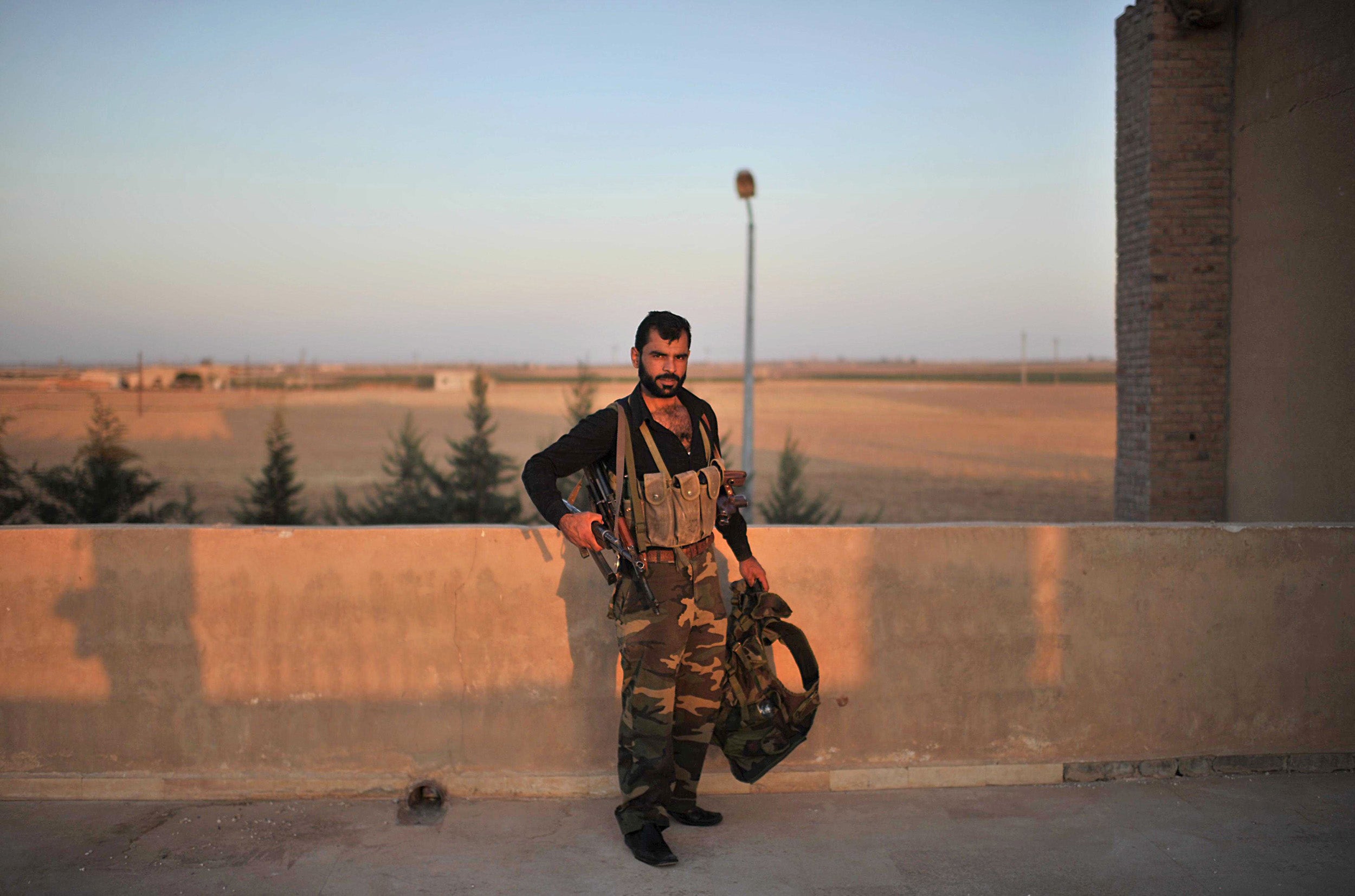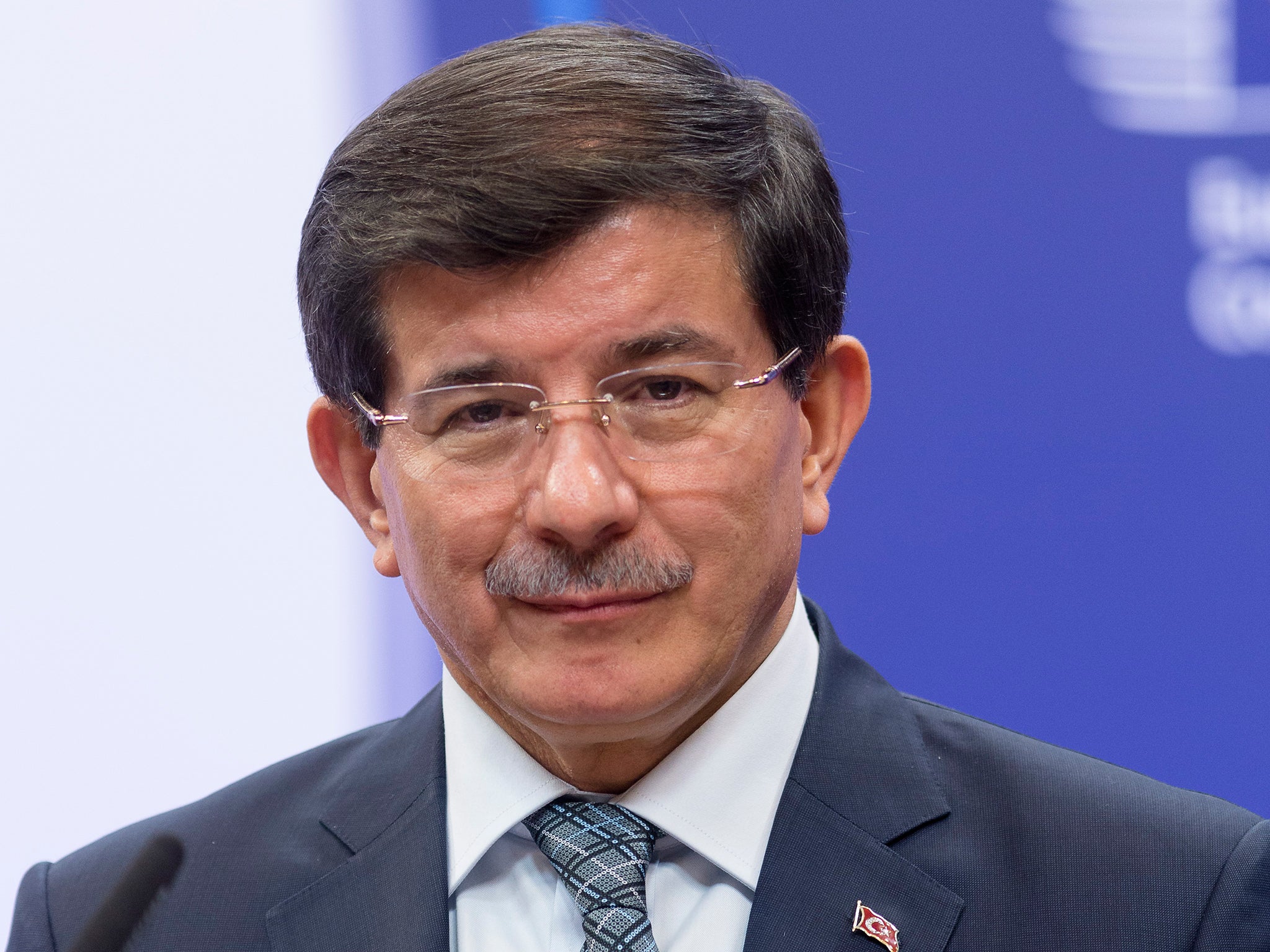Turkmen: The ethnic group who 'killed two Russian pilots' in Syria
Turkmen are descended from groups who began moving into modern-day Syria during the 10th century

Your support helps us to tell the story
From reproductive rights to climate change to Big Tech, The Independent is on the ground when the story is developing. Whether it's investigating the financials of Elon Musk's pro-Trump PAC or producing our latest documentary, 'The A Word', which shines a light on the American women fighting for reproductive rights, we know how important it is to parse out the facts from the messaging.
At such a critical moment in US history, we need reporters on the ground. Your donation allows us to keep sending journalists to speak to both sides of the story.
The Independent is trusted by Americans across the entire political spectrum. And unlike many other quality news outlets, we choose not to lock Americans out of our reporting and analysis with paywalls. We believe quality journalism should be available to everyone, paid for by those who can afford it.
Your support makes all the difference.The Russian plane downed by Turkey was conducting operations in the Turkmen Mountain region of northern Syria when it was accused of violating Turkish airspace.
The encounter has shone a light on Syria’s Turkmen, a distinct ethnic group whose members have lived alongside their Arab and Kurdish neighbours for centuries.
There are no official statistics for the number of Turkmen in Syria, but there are now thought to be around 200,000, their number having been worn down by recent war and decades of persecution.
Most are to be found in Latakia province, which runs along Syria’s north west coast up to the boarder with Turkey, and is also the family seat of the Syrian president Bashar al Assad. Smaller numbers live in the province around Aleppo, Syria’s second city, and the central city of Homs.
Turkmen, who are mainly Sunni Muslims, are descended from groups who began moving from Central Asia into modern-day Syria during the 10th century. They faced oppression under Syria’s Baathist regime, facing restrictions on publishing or writing in their language, an old form of Turkish. When the Syrian uprising began in 2011, they were among the first to take up arms against government forces.
Their shared ethnic heritage and joint opposition to the Syrian government made the Turkish government a natural ally of Turkmen fighters in Syria. Turkmen brigades have looked to Ankara for training, support and protection.

Turkey also sees them as an alternative fighting force to Syrian Kurds, who have Western backing but are viewed with hostility by Turkey due to its own struggle against Kurdish separatism.
Turkmen brigades, said to number at least 2,000 fighters, are seen as more moderate than some of the Islamist groups battling Syrian government forces. They were earmarked for training as part of an ill-fated US programme to back Western-friendly opposition forces in Syria, though they are also said to fight alongside groups such as the al-Qaeda affiliated al-Nusra Front and the Islamist Ahrar al-Sham.
Turkmen commanders have complained that they have not received enough support from Western nations and Turkey despite their willingness to battle against both the Syrian army and Isis.
In recent days, Turkey has grown increasingly agitated over Russian involvement in an offensive against Turkmen areas in north-western Syria. Russian military aircraft have provided cover for Syrian forces working jointly with the Lebanese militia Hezbollah and Iranian units backing them, according to Turkmen groups.
The Turkish prime minister, Ahmet Davutoglu, described those coming under attack as “our Turkmen brothers” and accused Russia of not pursuing its stated aim of “fighting terror” but instead bombing civilian villages. Turkey's foreign ministry summoned the Russian ambassador to demand that Russia cease its support for the operations immediately.
Join our commenting forum
Join thought-provoking conversations, follow other Independent readers and see their replies
Comments